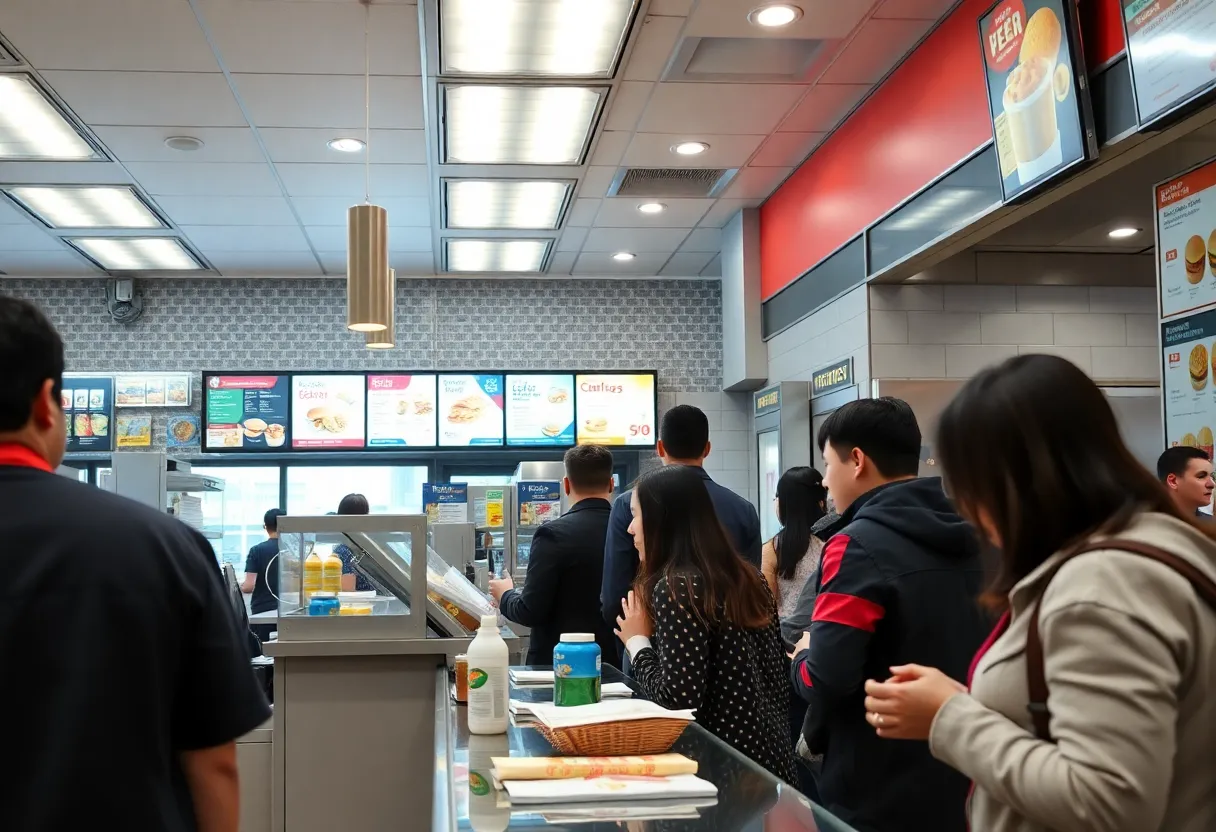News Summary
California has raised the minimum wage for fast-food employees from $16 to $20 per hour starting April 2024, making it the highest in the nation. While major chains like McDonald’s and Subway are adjusting prices, the wage hike has led to significant job losses in the industry. However, some operators report a decrease in employee turnover and an increase in job applications. Despite this, the overall business climate remains challenging as sales and customer visits decline due to hesitance over rising costs.
California has implemented a historic rise in the minimum wage for fast-food employees, increasing it from $16 to $20 per hour as of April 2024. This change has positioned California as the state with the highest minimum wage in the nation, significantly affecting fast-food operations across the state.
In response to the wage hike, major fast-food chains including McDonald’s, Subway, Chipotle, and Burger King have adjusted their menu prices to mitigate the financial impact of Assembly Bill 1228. However, California trade organizations report that the law has resulted in substantial job losses within the fast-food industry. Conversely, the office of Governor Gavin Newsom contests these claims, presenting a different narrative regarding employment trends.
Mike Keung, an operational manager of seven McDonald’s locations in Los Angeles County, has highlighted some of the challenges faced by business owners since the wage increase was enacted. Over the past year, Keung has observed a 16% reduction in overall restaurant hours and a cut in employee numbers from 413 to 384. Although he has refrained from laying off workers, hiring has diminished significantly, dropping by over 50%. Prior to the wage increase, Keung employed 317 individuals; this number has decreased to merely 140 since the law came into effect.
A notably positive outcome of the wage increase is a decrease in employee turnover rates. Keung reported that turnover has declined from 85% to 40%, suggesting that improved wages and benefits are helping to retain staff. Additionally, job applications have surged by 40%, with McDonald’s locations now seeing approximately 50 new applications daily. The quality of these applications has also improved, attracting more experienced candidates, including current and former educators, as well as individuals from other fields seeking secondary employment.
Despite these trends, the overall business climate remains challenging. Keung’s gross sales and customer visits have decreased by 16% compared to the previous year. This slump is partly due to customer hesitance to eat out, mainly driven by anticipated price increases related to the wage hike. As a result, the average customer check has declined by 10%, further constraining revenue.
In light of these operational struggles, Keung has reduced contributions to local initiatives and community support, along with cutting back on employee benefits and other perks traditionally offered by his restaurants. Moreover, the landscape of fast-food employment in California has shifted; limited-service restaurant jobs have fallen by 3.1% since the implementation of the higher wage law, equating to a loss of over 22,600 jobs.
While economists debate the influence of the minimum wage increase on job loss, they recognize that factors such as sluggish economic growth and a declining population may also play a role. California’s fast-food workers now find themselves earning more than workers in other minimum wage sectors, providing some financial stability to employees but resulting in reduced hours for many in the industry.
In response to rising living costs, workers are advocating for a further increase to $20.70 to maintain competitive wages. In contrast, restaurant owners express opposition to any additional wage hikes, citing ongoing operational difficulties stemming from the current minimum wage law. The Fast Food Council established by the state has the authority to make annual adjustments to the minimum wage based on inflation or by up to 3.5%, which could lead to continued debates on wage policies in the fast-food sector.
Deeper Dive: News & Info About This Topic
- CNN: California Fast-Food Wage Hike
- Wikipedia: Minimum Wage
- KTLA: McDonald’s Owner Discusses Wage Increase
- Google Search: California Fast Food Wage Hike
- The Guardian: California Fast-Food Minimum Wage
- Google Scholar: Minimum Wage Impact
- Encyclopedia Britannica: Fast Food Industry

Author: STAFF HERE HOLLYWOOD
The Hollywood Staff Writer represents the experienced team at HEREHollywood.com, your go-to source for actionable local news and information in Hollywood, Los Angeles County, and beyond. Specializing in "news you can use," we cover essential topics like product reviews for personal and business needs, local business directories, politics, real estate trends, neighborhood insights, and state news affecting the area—with deep expertise drawn from years of dedicated reporting and strong community input, including local press releases and business updates. We deliver top reporting on high-value events such as the Hollywood Bowl summer concerts, the Hollywood Christmas Parade, film premieres at TCL Chinese Theatre, and festivals at the Magic Castle. Our coverage extends to key organizations like the Hollywood Chamber of Commerce and Visit Hollywood, plus leading businesses in entertainment, dining, and tourism that define the local economy. As part of the broader HERE network, including HERELosAngeles.com, HEREBeverlyHills.com, HEREAnaheim.com, and HEREHuntingtonBeach.com, we provide comprehensive, credible insights into Southern California's dynamic landscape.



